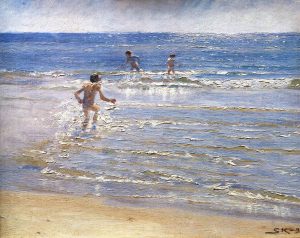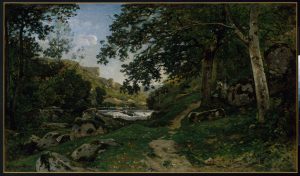Agostino – A Case Study in Mommy Issues
“This is why he must not betray the annoyance and disappointment that he was feeling. But try as he may to feign an air of composure and serenity, he still felt the everyone could read in his face how forced and petty his attitude was” (7)
A story can be powerful despite the length. Where many books are lengthy and redundant, Agostino is able to capture the fleeting moment of a summer in just under 100 pages. With prevalent themes of coming of age, sexuality, emotions, Agostino exists as inside a summer.
One thing I hope to not hear is…Freud. I am one of the biggest Freud haters. However, it is clear that Agostino has a case of mommy issues. Listen as much as I want to make fun of the guy, he is a kid. It is within the dynamic of being a newly 13 year old that one can decipher the inner workings on his strange fascinating with him mother. He is teetering on the line between being a child and an adult: the period of adolescence. The world is strange to him. But what’s even stranger is sex. He is dropped in the deep end (pardon the pun)and into the vicious waters of human sexuality.
To explore this complex narrative, we must first examine Agostino. Now, Agostino is not in love with his mother. While he does suffer from a strange fascination with her, it goes beyond that. Beginning the book, Agostino is his mother’s son. He is cared for by her and loved by her–he cannot imagine a world in which it isn’t just the two of them. However, drop in a 20 year old guy to flirt with and it seems that Agostino is pushed aside. Now Agostino has built a deep bond with his mother because his father left at a young age. This time of abandonment is reason to why Agostino feels so attached to his mother.
When it comes to Agostino’s fascination with his mother’s body, it goes back to the idea of human sexuality. Agostino is a child; he has lived his life filled with imagination. Curiosity is natural, and so is being swayed by older kids. The kids of the beach are the ones to tell Agostino about the real world, sending him into a spiral. It is this Agostino that watches the clothed figure of his mother, not from a place of actual arousal, but a morbid curiosity. He has been ‘corrupted’ in a sense and he longs to fully loose his innocence.
The plan of a loss innocence is lost in the end. This is where we see the summer wrap up. Agostino yearns to be with a woman, in some hope that it would cure him, but this seems crazy. He is worked up about this new found knowledge, as he mind starts thinking about his very own mother. He doesn’t crave sex, yet craves the answer to the mystery.
“Agostino’s first impulse was to withdraw quickly, but a new thought ‘She’s a woman,’ immediately stopped him, his hand still on the door handle, his eyes wide open. He could feel the whole of his former filial spirit rebel against the paralysis and pull away; but the new, timid yet strong spirit ruthlessly forced him to fix his reluctant eyes on a spot he would never have dared to set them the day before” (44)
Discussion Question:
Agostino ambitiously sets its aims on a compelling topic, growing up, how do you feel Moravia shows the drastic speed of Agostino’s maturity? Agostino is changed by the boys words on the beach, but how do you think he is truly understands the complex nature of human sexuality
Here is a painting of boys swimming by Peter Severin Krøyer called “Bathing Children”. I think this picture encapsulates the sort of child-like wonder that Agostino would want.


